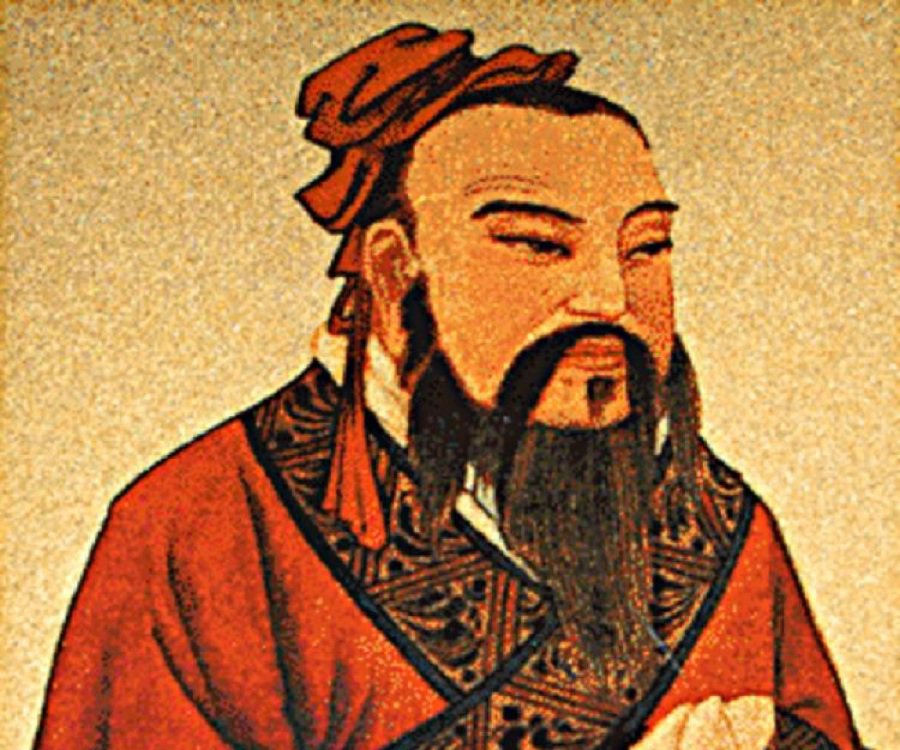
Q: What are your professional and personal ties to Confucianism?
A: Confucianism is the way of Chinese living manifested in a process of building up a balanced personality integrating professional with ethical in being a person, so you may call me a Confucian professor at the university, teaching courses on law, philosophy, religion, politics and human rights. According to Aristotelian disciplines, this might be categorized as “Jack of All Trades, But Master of None”; yet for Confucian catchphrase “scholarship integrating heaven and human”(天人之学) and thus “any discipline fails out of the scope of human knowledge may constitute the gravest shame for a Confucian scholar”(一事不知,儒者之耻). Such Confucian personality has been witnessed in both the ages of Chinese Spring and Autumn, and Warring States, and the Western Renaissance as well, where many great thinkers of encyclopaedia made themselves role models in encouraging the succeeding generations. I consider these traditions as spiritual catalyst for my profession and personality.
Q: Your presentation was titled, “Confucian Humaneness in Modern Human Rights Politics.” You called Humaneness (Ren) the ‘Ethical Logo’, but do you think Western human rights advocates would be convinced? How might Ren complement Western notions of human rights?
A: When John Lock advocates the supremacy of the natural rights of human over the natural power of king, he just insinuates the Christian faith that “equity before God” justifies the conviction “equity before Law”. Yet for Confucians, human is evolved out of natural process rather than being created out of God’s free but good will, so “humaneness” in Confucius is what God’s free and good will in Christians. They both consist of the moral base of human dignity in its other social, political, economic and cultural entitlements. In Confucius’ days, the rule was depicted as the social, political, economic and cultural disciplines in human intercourse, but people were not happy with them and their political and social life was thrown into big chaos, Confucius then set himself in re-examining the failure of rule and came up with “humaneness” as the moral base of ruling disciplines, being the political and ethical entity as “God’s free and good will” in creating, law-giving and salving people in the Christian tradition. In this context, Confucians advocate every human being is his/her own God, the incarnation of humaneness in human beings. I would consider the same empathy was felt by Nietzsche in his “the death of God” in the mercy of human dignity and autonomy.
Q: What new insights did you take with you from the presentations at the symposium?
A:I feel a strong and feasible viable views on reinterpreting Confucianism in a global context, and enjoy the academic atmosphere which I link them to the sense of combination of Socrates’ “life examination” and Schumpeter’s “creative destruction”, the healthy genre presented in the conference presentation and off-site discussion.
Q: You noted in your presentation that President Xi Jinping’s “Chinese Dream” allows current Chinese politics to connect with its Confucian ethical tradition. In what ways do you think Xi Jinping is applying Confucian ethics? Do you think his Anti-Corruption Campaign is an expression of this? And how do you rate its success?
A: Confucian political ethics is built on the theme that humaneness is the universal essence of human being and its social and political realization should be saints in all dimensions, like Confucian statesperson, Confucian businessman, Confucian doctor or health care-taker, Confucian generals and Confucian scholar in general. Mencius develops this Confucian humaneness –oriented political ethics to the metaphor of “great husband” or “cosmopolitan husband”, meaning “who won’t be seduced to being obscenely rich, who won’t give in because of being poor and plebeian, who won’t reconcile himself to coercion.” Xi Jinping emphasized that “Chinese Dream” has this objective “letting every Chinese live to his/her maximum success!” You may interpret the phrase as Chinese communists are under a political obligation to help realize this political and social promise solemnly given to every Chinese. This promise and obligation just coincides with Confucian humaneness in universal dignity and “great husband” in social and political justification. The objective of Chinese Communists is to “serve the people heart and soul”, an identical phrase to “respect human beings with their inherent dignity” and to strive to realize Communist promise made to the Chinese people, much like the promise Jehovah made to his “chosen people”. Contrary to this promise, there should be no more adherents to both Judaism or Chinese Communism or Confucianism. Anti-Corruption Campaign has one essential target to rid off the privilege of those powerful decaying politicians and to restore the constitutional track of civil rights superior to political powers, both Sun Yat-sen and Xi jinping stressed the separation of powers and caging powers in legal institutions. By this suggestion they resort to Confucian supremacy of humaneness over powers in freeing Chinese politics from Lord Acton’s dictum “power corrupts, absolute power corrupts absolutely”. The anti-corruption campaign has achieved striking success and won popular confidence for Communist-led government, but political reform should be introduced to consolidate this success, and I think the key point should be advocating and safeguarding people’s political and civil rights in election, supervision, suggestion and criticizing administrative powers. I do believe we should benefit our modern politics from the political implications of Confucius in his “plebeian criticism always arises from the political inequity.”(天下有道,则庶人不议)
